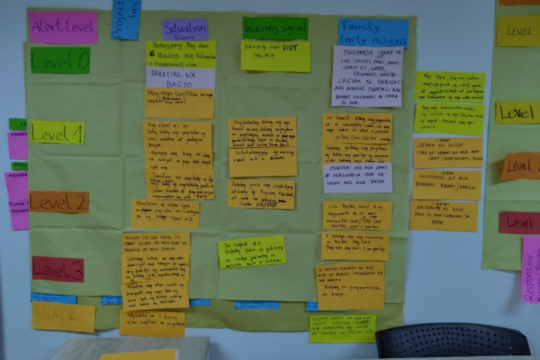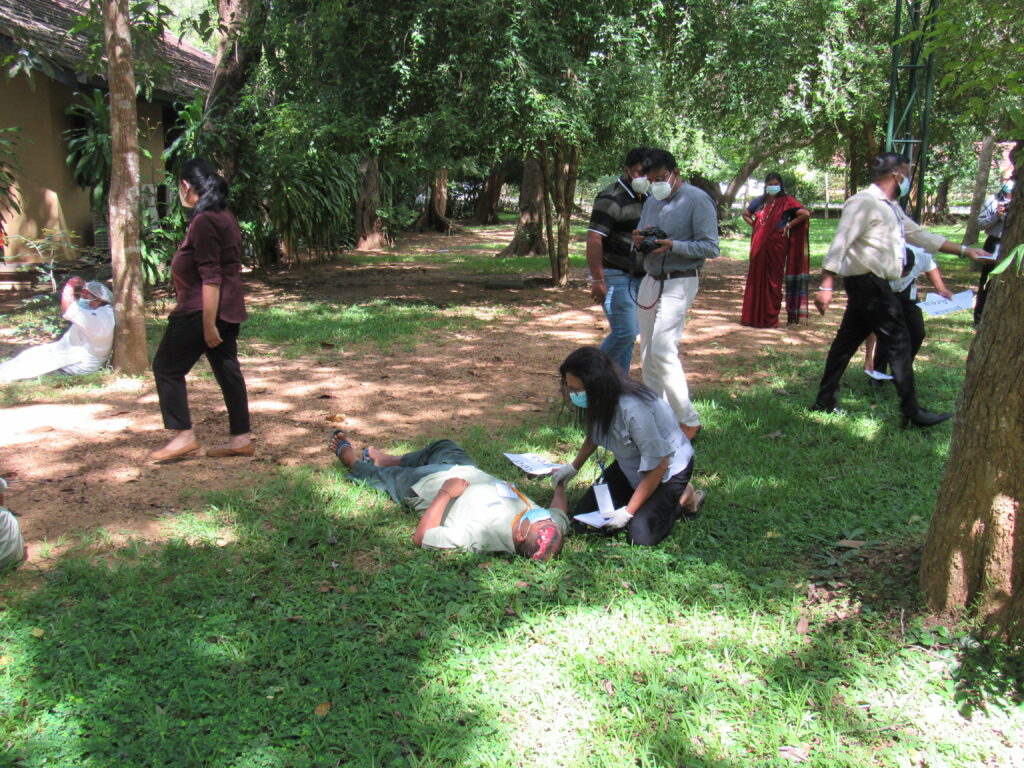
Health is central and essential to the well-being of any country. This is particularly relevant in the context of developing countries where every United States Dollar (USD) 1 invested in health will result in an economic return of USD 2 to USD 4. Healthcare is the everyday essential service that transforms into emergency response and life-saving interventions during disaster events. Program for Enhancement of Emergency Response (PEER) has initiated the Hospital Preparedness for Emergencies (HOPE). The program is one of PEER’s four core training components for the institutionalization of sustainable disaster preparedness training programs and emergency response systems.
World Health Day 2022 focuses on the global attention on urgent actions needed to keep humans and the planet healthy and foster a movement to create societies focused on well-being. This year’s theme aligns with HOPE’s aim to create resilient health systems. It seeks to train health personnel to make the best use of available resources as well as manage emergency incidents effectively and efficiently. HOPE introduces pertinent issues of risk assessment, incident management system, decontamination, stay and defend strategies, hospital evacuation, on-site medical care, Chemical, Biological, Radiological, Nuclear, and Explosives (CBRNE) issues, and disease outbreaks. It seeks to foster proper coordination among different health facility departments and prioritize critical action.
Prescribing Better Practices – the HOPE Evolution and Rationale
HOPE was pilot tested in India, Nepal, Indonesia, and the Philippines in 2003. It has evolved from concentrating on seismic hazards to a multi-hazard preparedness approach. The course advocates for the development of multi-hazard response arrangements and procedures as a cost-effective way to prepare hospitals for the management of health emergencies and disasters.
Hospitals play a unique role during disasters that require them to increase their capacity in response to address growing health demands. HOPE seeks to enhance the capacity of hospitals and health facilities to be better prepared to manage emergencies and mass casualty events. It was designed to train both administrative and medical professionals for unified and effective response. The training enables these institutes and individuals to devise meticulous facility-specific emergency response plans to enhance their capacity for an emergency response while they continue to provide critical medical care.
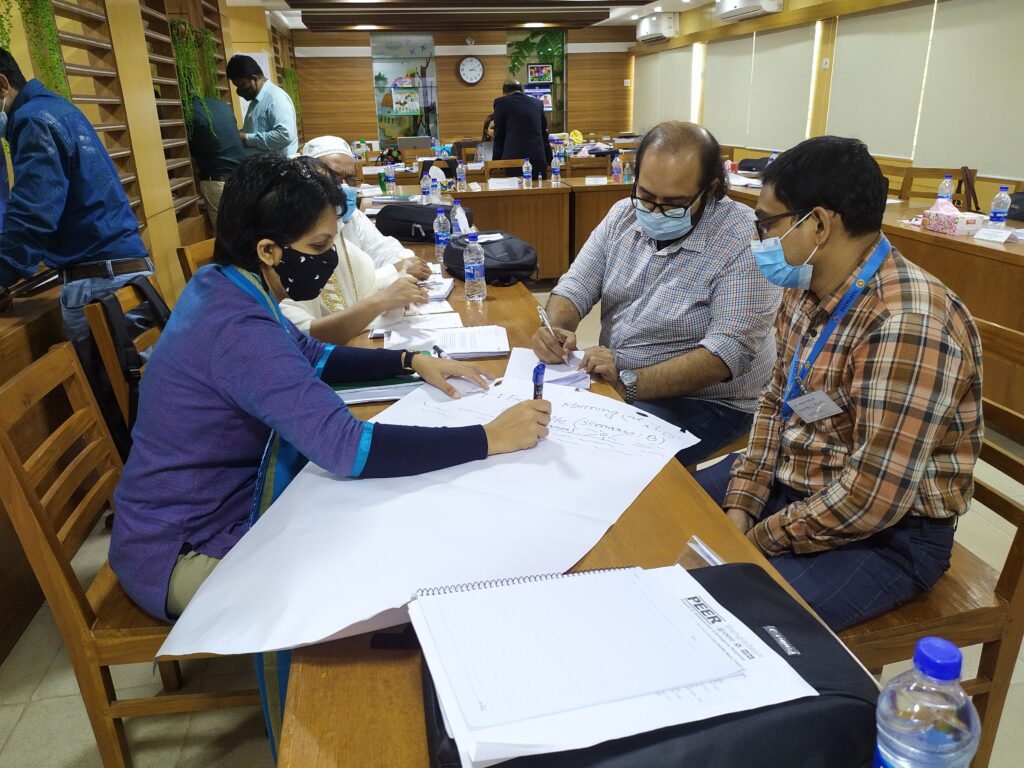
Comprehensiveness distinguishes HOPE as a training course. It addressed numerous risk reduction and preparedness challenges that hospitals and health facilities face. Multidisciplinary experts have developed the course with priority on the ‘resource challenged’ environment of health facilities across Asia. HOPE enable hospitals to be inventive in developing facility-specific and practical operational arrangements using their existing and limited resources. The ultimate goal is to establish hospitals that can continue to operate and prevent functional collapse in order for these establishments to provide life-saving care to disaster-affected communities.
HOPE Institutionalizing – the Frugal Way Forward
Healthcare spending in the Asia-Pacific is continually increasing. The region is expected to represent more than 40% growth in global healthcare over the next decade. HOPE is a capacity-building and training program that seeks to instill a strategic approach to the growing demands of health systems. It provides the knowledge and skills that hospital managers, department heads, and members of the hospital disaster management committee need to make minimum arrangements to manage emergencies and disasters with existing resources. Participants learn to develop strategies that are sustainable and can be integrated into a hospital’s routine such as disaster proofing plans for the institute. These provisions include risk management considerations when constructing the expansion of the hospital, hiring additional staff, expanding hospital services, and adding more equipment. HOPE also integrated emergency training in human resource development to improve community response capacities. Such outreach activities will prevent overwhelming the hospital during disasters.
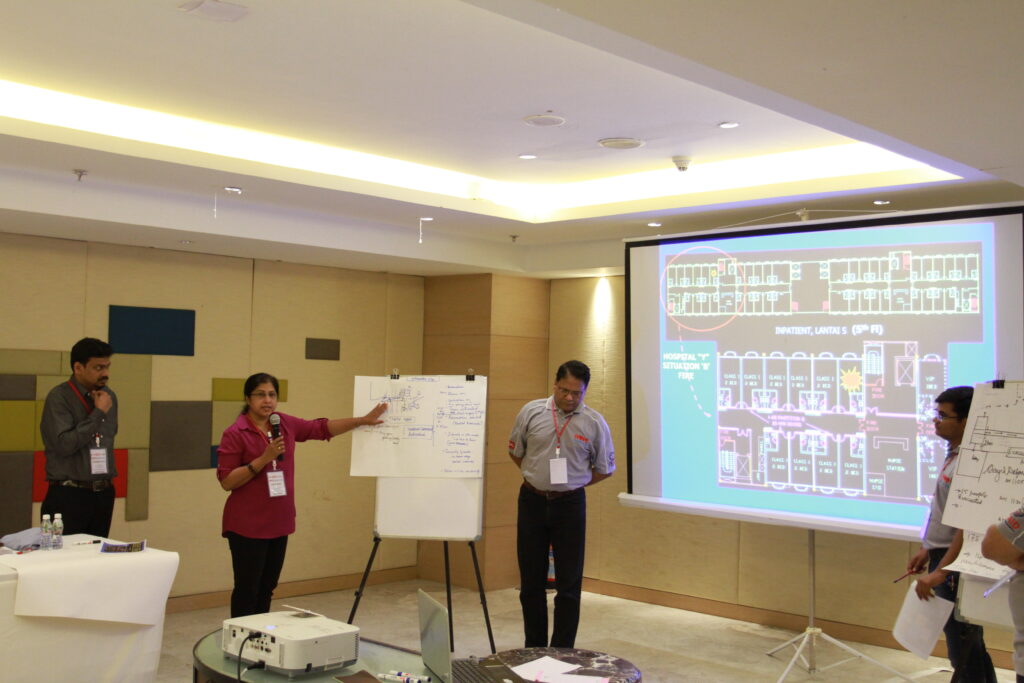
Hospitals like any crucial establishment are stronger through collaboration and cooperation. HOPE work with hospitals to form a network that acts as a hospital hub system. This prevents stagnating a single hospital while promoting mutual aid support during crucial periods. The course also enables better coordination with relevant external agencies as part of the broader system. This is possible because HOPE aligns with the national incident management system that has similar coordination, command, control, and communication mechanisms to hospital incident command systems. Training and academic institutions have integrated the HOPE curriculum on hospital safety, preparedness, risk reduction, and resilience into their existing syllabus. The HOPE modules have promoted greater knowledge regarding hospital operationalization, updated research on these subjects, and facilitated a more evidence-based practice.
Investing in health would ideally create equitable national achievement. However, many developing countries require greater financial capacity for such contributions. The dialogue and priority then shift to maximizing the existing resources and manpower. HOPE seeks to unlock the potential of these health institutions to strategize the best way forward.
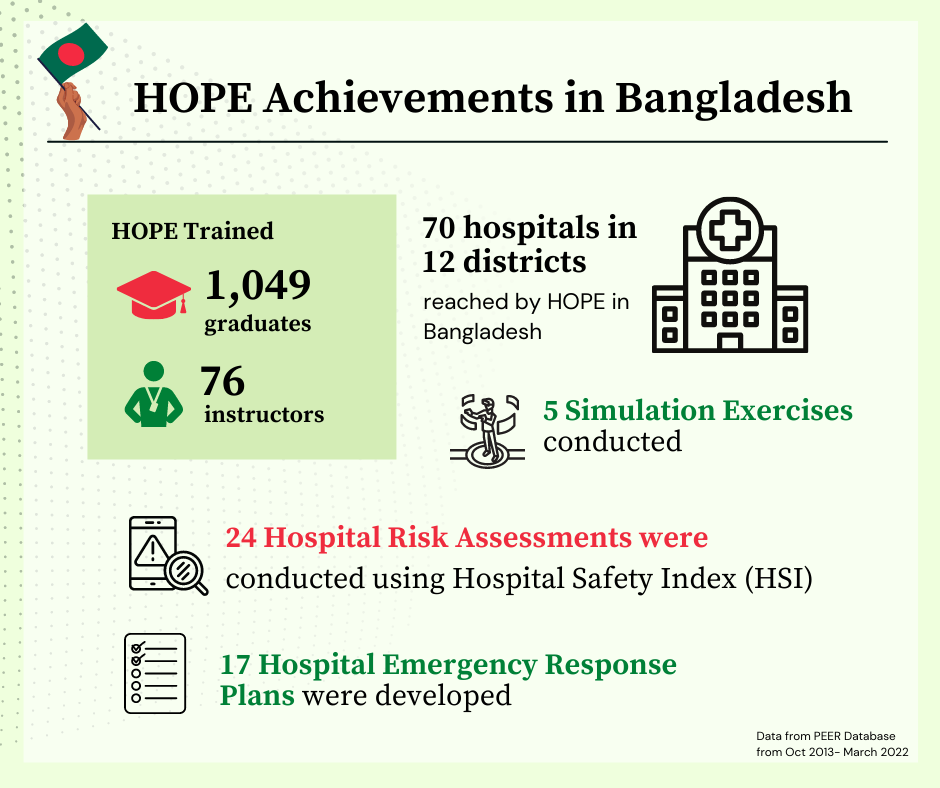
Bangladesh
- 23 hospital personnel from the National Institute of Preventive and Social Medicine (NIPSOM) trained in HOPE Basic Courses
- 22 medical staff from 4 Upazila level hospitals trained under HOPE Basic course
- 23 hospital staff completed HICS training in Baghaichari Upazila Health Complex
- Supported Directorate General of Health Services (DGHS) contextualizing Hospital Disaster Safety Assessments (HDSA)
- HOPE Graduates from Mymensingh Medical College Hospital and BSMMU providing emergency response medical support during Covid 19 response.
- Graduates of Shaheed Suhrawardy Medical College Hospital (ShSMCH) successfully applied their training during the fire emergency and managed the efficient and safe evacuation of all patients without casualties in Feb 2017.
- NIPSOM adopted HOPE course in 2022 and planned 2 trainings
India
- Program development and review committee meeting organized with Gujarat Institute of Disaster Management (GIDM)
- 2 online HOPE course organized for the staff of Saudi Red Crescent
- HOPE Refresher Course and Training for Instructors Course initiated for health institutes in Gujurat

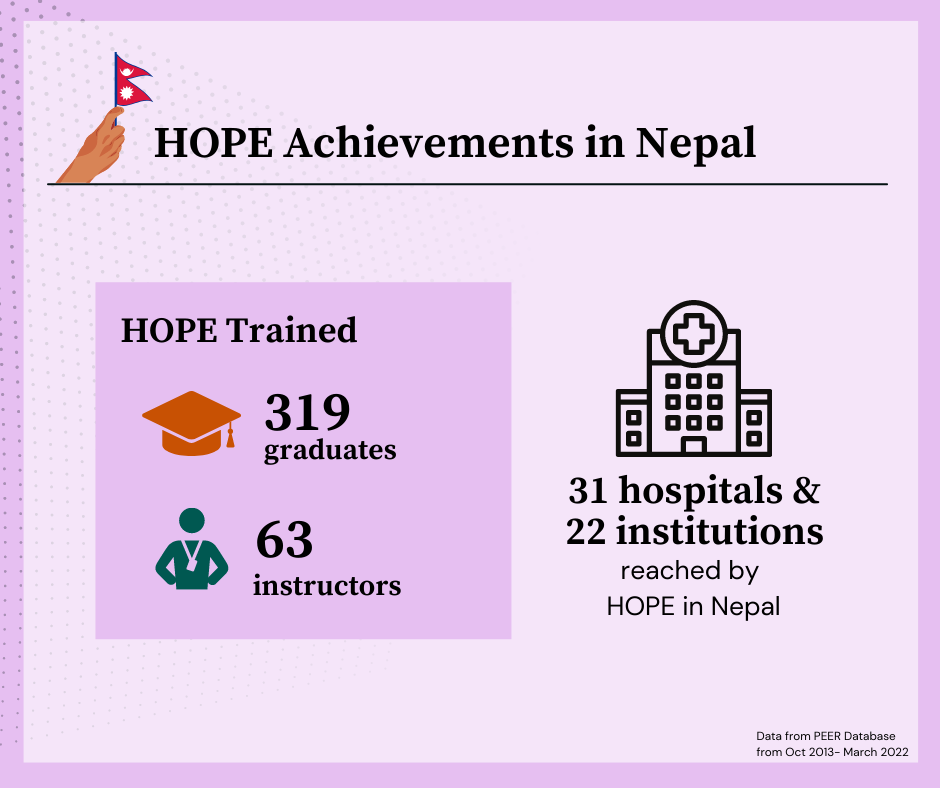
Nepal
- 22 (13 Joint Secretary level MoHP officials) government health professionals actively participated in HOPE basic training
- Support from the Ministry of Health and Population, to conduct HOPE instructor trainings in the country
- HOPE curriculum reviewed, contextualized, and validated
Pakistan
- Conducted Engagement workshop with medical institutions to integrate HOPE course in their existing curriculum
- Constantly updating HOPE curriculum to adopt the curriculum to the country’s context
- HOPE curriculum reviewed, contextualized, and validated
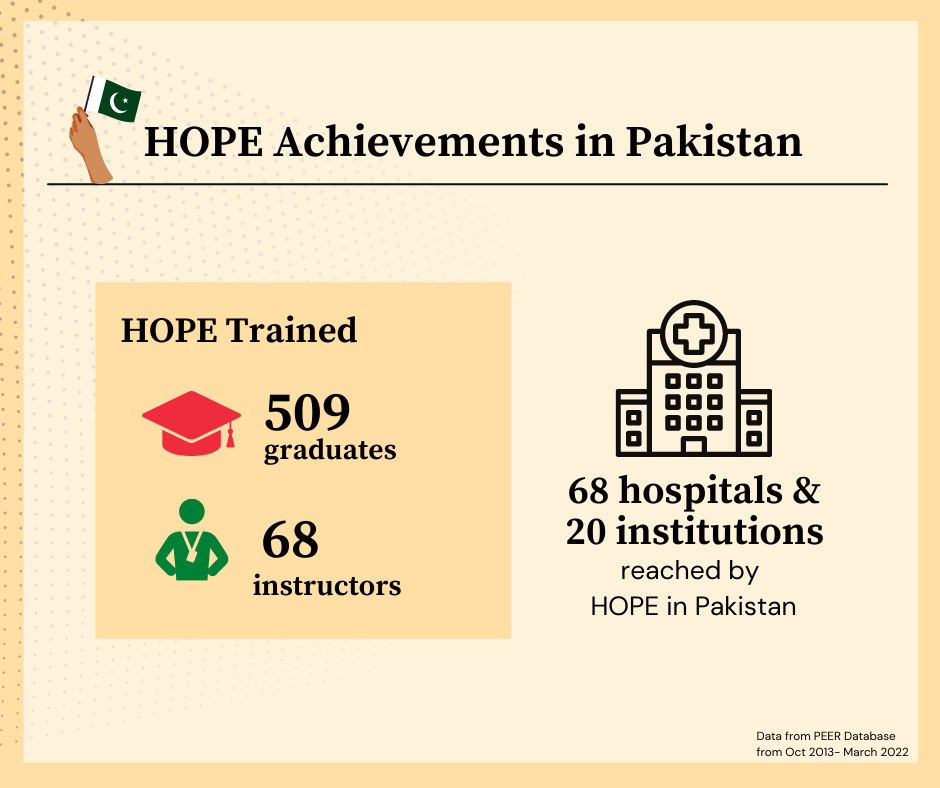
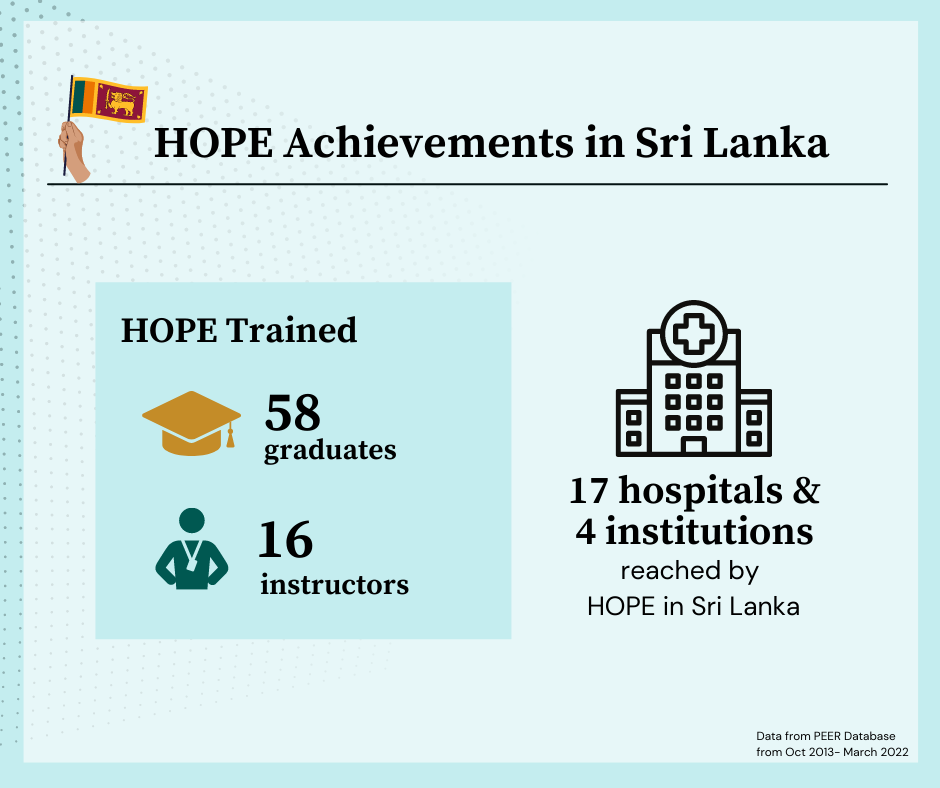
Sri Lanka
- HOPE curriculum reviewed, contextualized, and validated
- 18 medical professionals from the Ministry of Health successfully completed HOPE training
- 16 medical officers from the Ministry of Health graduated as HOPE instructors in the country
- Facilitated a workshop organized by the Ministry of Health to highlight the importance of structural resilience of hospital and share the vulnerability study conducted by the University of Moratuwa
Cover Photo by Freepik.
